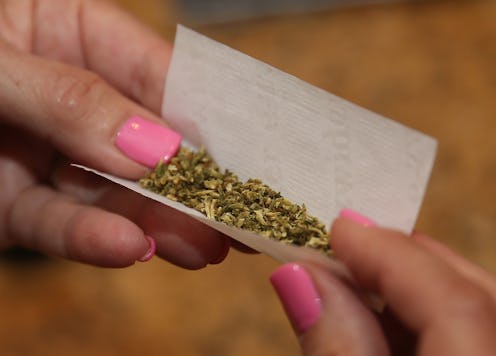News
New Study Refutes Major Anti-Marijuana Argument
New data just released by the Colorado Department of Public Health and Environment reveals a new development in the ongoing debate surrounding marijuana legalization, and it's a tough blow for prohibitionists. Marijuana use among Colorado teens has fallen by about 4 percent since the state legalized the drug in 2014, meaning the mass corruption of the youths feared by those against legalization is all but proven a myth.
This is a major loss for advocates who argue that legalization will put kids in harms' way, but it was never a feasible argument anyway. Colorado's laws mandate that you must be 21 to purchase weed from a legally operated store, just the same as alcohol. And of course, kids could get it illegally from other places or get someone else to buy it for them, but the same is absolutely true for alcohol as well, and no one is trying to make alcohol illegal again.
The data is great news for legalization advocates, but it's not the first time this connection has been made — similar data was already easily available from Portugal, which decriminalized all drugs in 2001. Since then, with proper education in schools, teenage drug use decreased between 2001 and 2006 by almost 4 percent. Kids are trained to think about drugs differently, in a non-judgmental way that doesn't make drugs mysterious or intriguing, therefore eliminating the rebellious enticement of doing drugs as a kid.
With this huge tentpole of the anti-legalization argument knocked down, it could be a big step forward towards major changes in U.S. drug policy, which may be at the center of a lot of current issues the country is facing. After Portugal decriminalized, the prison population fell drastically, new HIV infections plummeted, and drug-induced deaths became nearly non-existent.
But this doesn't mean the U.S. should necessarily jump to full legalization just yet — there are still problems to solve in a legalized society. Blacks and Latinos are significantly more likely to get arrested for marijuana charges, and are significantly less likely to be able to sell marijuana legally. Fighting to make the drug policy egalitarian could be more difficult than changing the rules altogether, but equality needs to be at the forefront of any reform.
The data is based on self-reported data, so there's always the possibility that the actual number of Colorado teens who do smoke is much higher, but these data are an encouraging sign that legalization really works. Many anti-legalization myths have already been busted and could be enough evidence for changing drug policy, but people still need serious convincing. As hard data emerges on the specific effects of legalization in the U.S., that tide will potentially turn and the country can begin to develop a more compassionate drug policy.
